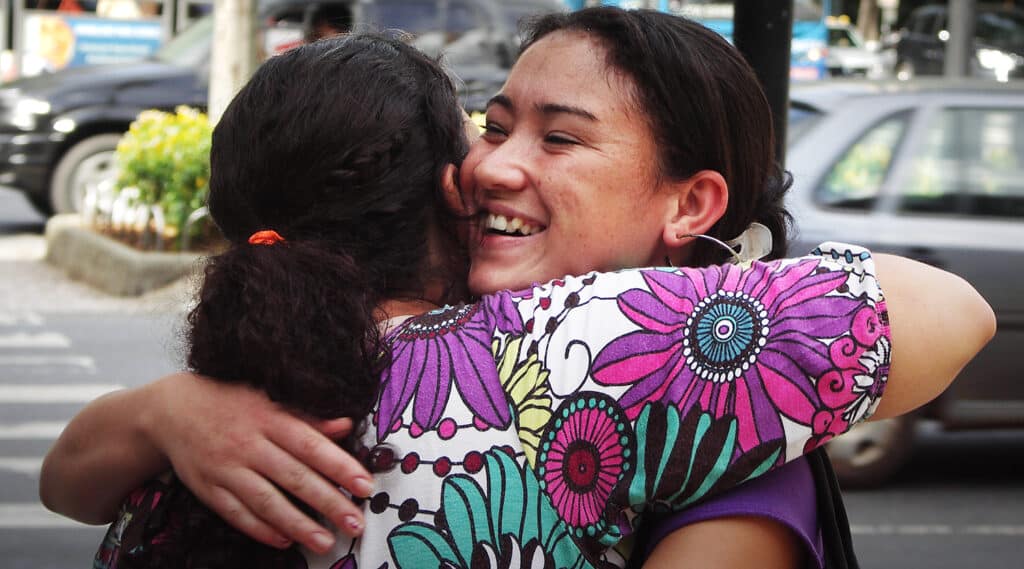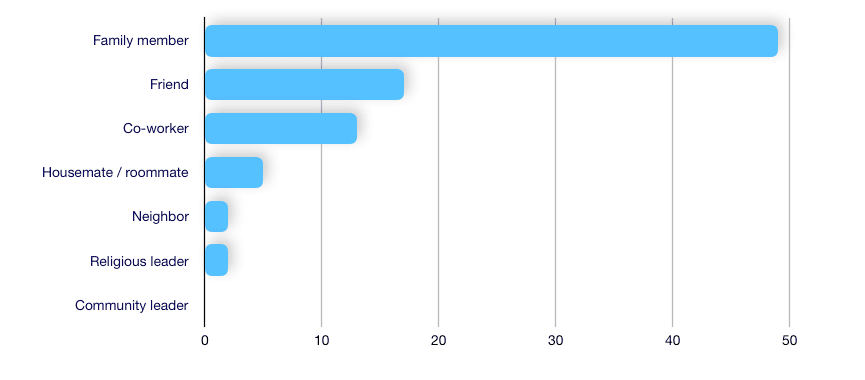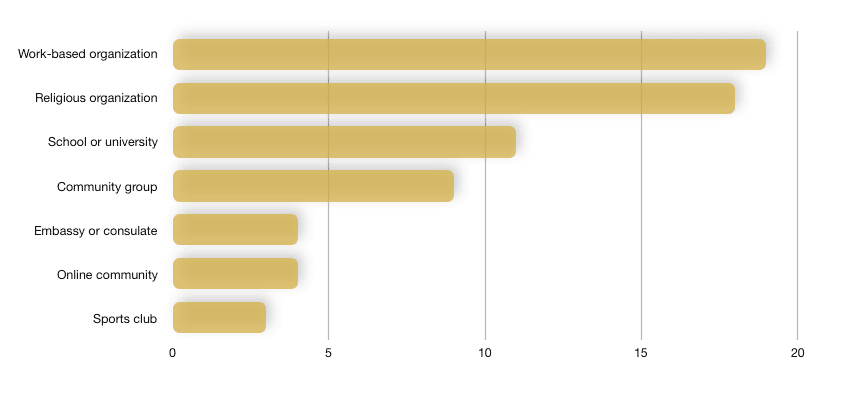
Migration is an emotional journey, as much as a physical one.
Leaving behind family and friends is never easy. Arriving in a new country can be even harder – a dizzying mix of excitement and optimism, sometimes also loneliness and fear.
Receiving a warm welcome makes all the difference, whether it is a group of relatives waiting at the airport, or just a friendly greeting from a neighbor.
Remitly customers have been telling us about the welcomes that made them feel at home when they first arrived.
We surveyed 1,000 people, and the results are heartwarming, and occasionally surprising.
We asked:
- Who were the people that made you feel most welcome, arriving in a new country
- What were the organisations or groups that made you feel most welcome
Family first… but not for everyone

Nearly half (49%) of respondents said that family living in the new country made them feel most welcome.

Friends who had already moved there came second (17%).
One notable exception was Indian immigrants living in the United States who said that their co-workers (34%) gave the best welcome.
In the UK, however, Indians rated family first (41%), followed by friends (27%) and then co-workers (19%).
What can explain the difference?
The UK has seen several generations of immigration from its former colonies, including India (since the 1948 British Nationality Act), meaning that new arrivals are likely to have a significant extended family or friends waiting in Britain.
In the US, Indian immigration prior to the 1990s was relatively low. Today many Indians move to the US for highly skilled jobs (75% of H1-B Visas go to Indians). With so many people moving for work, and a relatively short history if Indian migrations, perhaps it is not surprising that Indians feel most welcomed by their workplace.
Work narrowly beats worship for a warm welcome

Workplace-based groups, such as unions, office social clubs and associations, were reported as giving the warmest welcome of any organisation (19%), slightly ahead of religious institutions (18%).
However, there was some variation within the different national groups surveyd:
Just as Indians reported that co-workers were the first individuals to extend the hand of friendship, they also felt that workplace groups (34%) were most welcoming, followed by school or university (18%) then religious organisations (12%) .
Immigrants from Mexico (22%) and the Philippines (22%) – both traditionally Catholic countries – found religious organisations most welcoming.
However, considering responses just from Filipinos in the UK, workplace-based groups (24%) were slightly ahead of religious institutions (18%).
This may be due to the high number of Filipinos employed in Britain’s National Health Service (18,000). Many staff are recruited directly from the Philippines so it is likely that their first point of contact is with their new colleagues within the NHS, even if they go on to find a church later.
Myth of the friendly neighbor?

We’ve all seen it on TV – the friendly neighbor who turns up with a casserole or home-made cookies to welcome the new family to the area.
It might still happen, but there’s little evidence in the Remitly survey. Just 2% of respondents said that their neighbors provided the first, or warmest welcome.
There was also no mention of neighbors in the written comments of 1,000+ people who took the survey.
Could it be that the days of neighborliness have passed?
It is more likely that making friends with our neighbors is a slow-burn, something that happens some time after people are settled and have been made to feel welcome by others.
The idea of the people next-door coming to say hello as you unload the moving van may not exist, but that doesn’t mean that we don’t eventually get to know our neighbors.
[Note: Remitly surveyed 1,064 customers during June 2019]